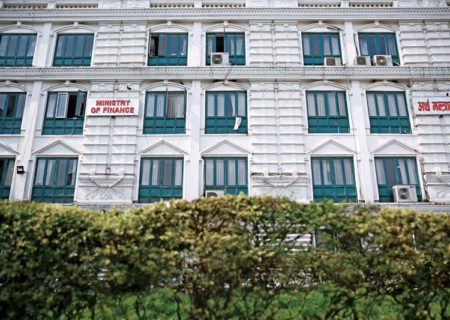Spending on low priority projects halted
Kathmandu, April 3
The Ministry of Finance, which is under pressure to manage resources for containing the spread of coronavirus in the country, has barred government agencies from haphazard spending and expenditure on low priority projects and programmes.
Issuing a circular to ministries and government agencies yesterday, the MoF directed them to halt budget spending under 14 different headings.
MoF has barred spending of budget on purchasing vehicles, machinery equipment, furniture, consultancy services, land acquisition, software development and purchase.
Similarly, agencies have also been asked to halt capital budget spending on staff training, programmes, skill development and awareness activities, monitoring and other activities of low importance.
“As the prime responsibility of the country today is to prevent the spread of coronavirus, it requires huge resources. Thus, government agencies have been asked not to spend budget except for essential purposes,” said Uttam Kumar Khatri, spokesperson for MoF.
Ministries and government agencies have also been asked to postpone programmes announced in the budget. The intention behind such direction is to use budget allocated for such comparatively less important programmes for containing the spread of coronavirus, if necessary, say MoF officials.
“Budget allocated for aforementioned headings will be mobilised for other high priority sectors if required,” added Khatri.
However, MoF has clarified that budget will be available to clear all liabilities created till April 2 of all programmes and projects.
The spread of coronavirus is expected to hit Nepal’s economy and budget spending and the entire growth rate for this year. Today, the Asian Development Bank projected that Nepal’s economy would slow down to 5.3 per cent (at market prices) in the ongoing fiscal year, down from 7.1 per cent a year earlier.
With an aim to launch initiatives against the spread of the coronavirus, the government has also formed a COVID-19 Fund. So far, different government agencies and the private sector have contributed more than Rs 1 billion to the fund.
The government has also prepared a working guideline to mobilise the resources collected in the fund. According to the guideline, resources collected in the fund will be mobilised for both government and non-government agencies working to prevent the spread of coronavirus and even private sector bodies, including the private hospitals.
A version of this article appears in e-paper on April 04, 2020 of the Himalayan Times.






